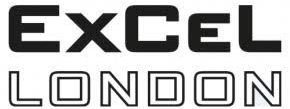7 ways to implement covid control measures in restaurants and pubs
With social and catering activity at an all-time low in the lockdown Derek Gardner, Environmental Health Consultant and a Director at Navitas, explores how businesses can prepare for safe reopening.
1) Get a COVID specific safety certification
When restrictions eventually relax, people could be fearful of returning to their old habits, so the industry will need to reassure returning customers with proven safety procedures.
Showing you are certified in COVID-specific measures and that you have undergone training and a risk assessment, you will not only ensure you comply with government guidelines but that you are putting customers’ concerns to rest.
2) Temporarily change the way you operate and consider delivery
Takeaway kitchens have remained open but the government hasn’t yet given any detailed guidelines on the safety of their staff and it’s still challenging to put effective controls in place as most kitchens are confined areas.
While temporary measures such as ‘one in, one out‘ systems have been put in place in takeaways, employers still have a duty of care to their staff and implement effective controls both back and front of house to as early as is safe and possible.
3) Designate a Covid Champion
All staff should undergo awareness training and we suggest appointing a designated Covid Champion responsible for hourly checks for front-of-house separation, the correct use of PPE and other controls on a checklist.
Establish a daily check-in system, asking staff to disclose their own health or health of a member of their household when they come to work.
4) Consider your PPE requirements
In order to reduce the risk of viral infection and where 2m social distancing may not be achievable i.e. passing in a corridor, the following PPE is recommended:
• Disposable gloves
• Disposable surgical facemask
• Disposable headwear
In addition, uniforms should be laundered in a hot wash daily, or as frequently as possible, in order to achieve a satisfactory level of ‘disinfection’.
The above items should be renewed for each separate business case and amended according to the risks associated with your operation.
5) Sanitising stations and cleanliness
Every business should enhance their sanitisation around touchpoints like light switches and handles, and regulate hand washing to a minimum of every 20 minutes.
Businesses should check their delivery procedures and the safe decanting and unwrapping of food.
6) Social Distancing
Like supermarkets, we must adopt a system of travel and clear signage to ensure customers and staff stay 2m apart and review seating and screening arrangements between tables.
Cash exchange is almost redundant now, so businesses must facilitate easy contactless payment and review acceptance of cash tips.
7) Conduct a Risk Assessment
Quick shutdowns are risky. People leave oil in fryers and there is a big risk of pests, like rats, taking advantage of human absence to seek food.
Statutory test certifications of electric and gas may have expired, so your reputation is at risk, if you don’t consider the potential impacts, and you’ll need to consider how you clear tables, serve food and deal with customer toilets.
While hospitality industry waits to hear what measures they’ll need to take when the lockdown is eased, Navitas’ has produced guidance to help the industry to re-open its doors safely when they can. They cover; front of house procedures and practical controls to stop any spread of COVID-19, food production and kitchen work areas, and general controls for staff.
To get the full list of guidelines please visit: https://www.navitas.eu.com/coronavirus-control-certification-scheme/









